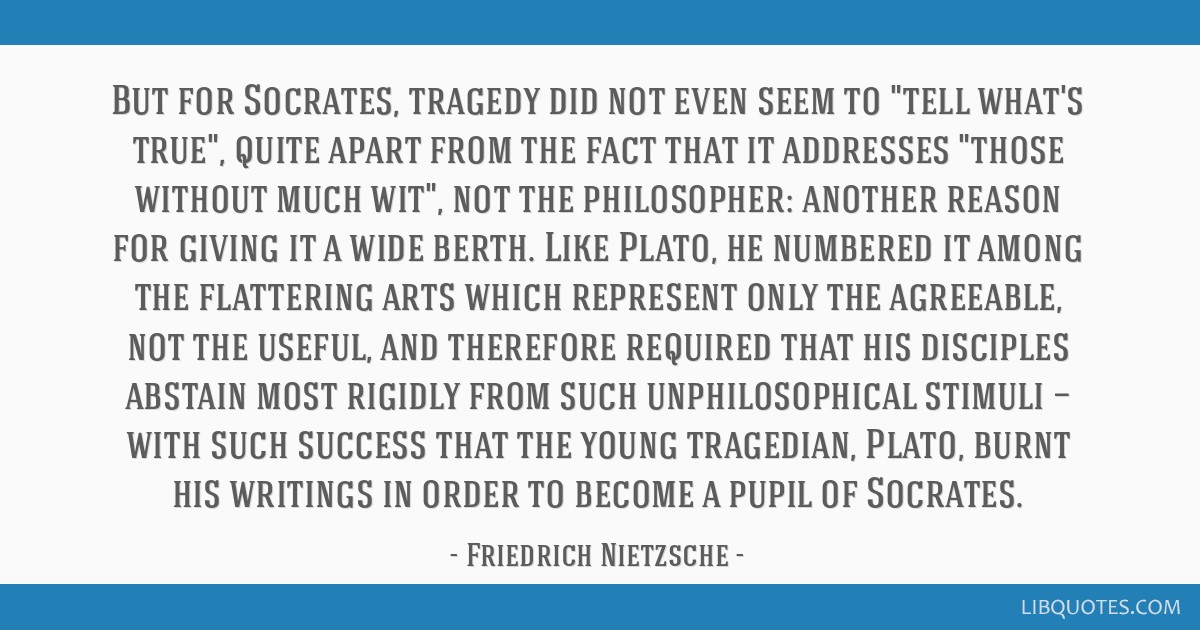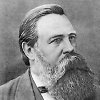But for Socrates, tragedy did not even seem to "tell what's true", quite apart from the fact that it addresses "those without much wit", not the philosopher: another reason for giving it a wide berth. Like Plato, he numbered it among the flattering arts which represent only the agreeable, not the useful, and therefore required that his disciples abstain most rigidly from such unphilosophical stimuli — with such success that the young tragedian, Plato, burnt his writings in order to become a pupil of Socrates.
The Birth of Tragedy (1872)























